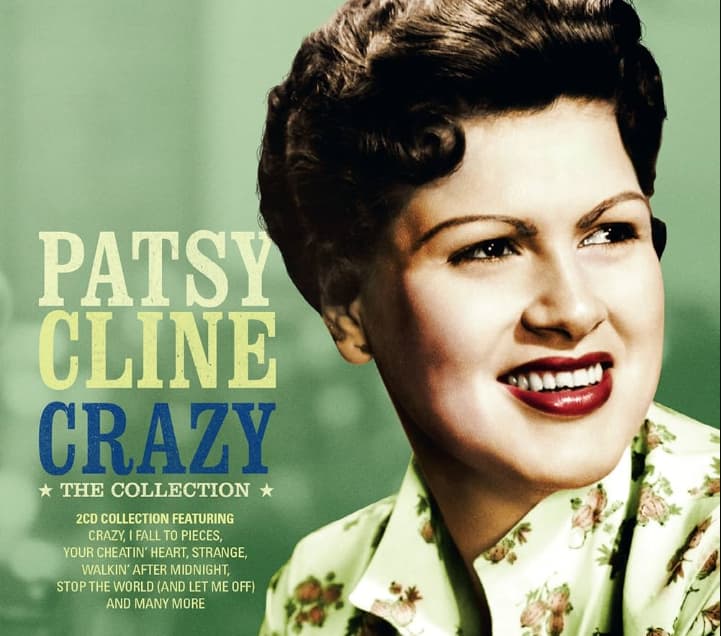
A Melancholy Masterpiece: The Enduring Heartbreak of “Crazy”
Ah, Patsy Cline. Just hearing that name conjures a feeling, doesn’t it? A shimmering, melancholic echo from a time when country music, with its raw honesty and powerful narratives, truly captured the American spirit. And among her storied repertoire, there’s one song that stands head and shoulders above the rest, a timeless lament that continues to resonate with anyone who’s ever felt the sting of unrequited love or the ache of a fading romance: “Crazy.”
This isn’t just any song; it’s a touchstone, a cultural landmark. Released in late 1961, “Crazy” quickly ascended the charts, becoming a monumental crossover hit. It peaked at number two on the US Hot Country Singles chart, but its reach extended far beyond the traditional country audience, climbing to an impressive number nine on the Billboard Hot 100. For a country song at that time, especially one so steeped in a traditional, almost mournful, waltz tempo, this was an extraordinary achievement, cementing Patsy Cline‘s status as a bona fide superstar and a trailblazer who effortlessly bridged the divide between country and pop.
The story behind “Crazy” is as captivating as the song itself, woven with threads of serendipity and a touch of almost poetic irony. It was penned by none other than Willie Nelson, then a struggling songwriter looking for his big break. Legend has it that Nelson originally wrote the song with a completely different sound in mind, envisioning it as a fast, upbeat honky-tonk number. However, the producer, the visionary Owen Bradley, heard something else entirely. He recognized the profound emotional depth within Nelson’s lyrics and believed they called for a slower, more deliberate, and ultimately more heartbreaking arrangement. Bradley’s intuition was impeccable, and his decision to transform “Crazy” into the melancholic ballad we know and love was a stroke of genius.
Yet, Patsy Cline herself wasn’t immediately sold. Reportedly, she found the song difficult to sing, initially struggling with its intricate melodic lines and the unique phrasing that Bradley envisioned. There are anecdotes of her needing numerous takes, even arriving at the studio on crutches after a car accident, the pain perhaps adding another layer of raw vulnerability to her performance. But when she finally nailed it, the result was pure magic. Her voice, a rich, resonant alto with an unparalleled ability to convey deep emotion, imbued every word with a profound sense of longing and despair. Her performance wasn’t merely singing; it was an act of channeling, an embodiment of the very heartache the lyrics described.
The meaning of “Crazy” is, on the surface, straightforward: the protagonist is bewilderingly, heartbreakingly in love with someone who doesn’t return their affections, causing them to question their own sanity. “I’m crazy for trying, and crazy for crying, and I’m crazy for loving you.” It’s a universal sentiment, beautifully articulated. But beneath that initial layer lies a deeper truth about vulnerability, the disorienting power of unrequited love, and the often-irrational nature of human emotion. It speaks to that moment when your heart takes over, overriding all logic, leaving you feeling adrift and, yes, a little “crazy.” For many, particularly those of us who have lived a few decades, it evokes memories of youthful infatuations, the sting of first heartbreaks, or perhaps even the quiet desperation of a love that has simply run its course.
“Crazy” isn’t just a song; it’s an experience. It’s the kind of melody that settles deep in your soul, pulling at forgotten threads of memory, reminding you of loves lost and lessons learned. It’s a testament to Patsy Cline‘s unparalleled artistry and Willie Nelson‘s masterful songwriting, a perfect storm of talent that created a piece of music as enduring and as beautiful as the human heart itself, with all its glorious, sometimes “crazy,” complexities. It truly is a song that transcends generations, continuing to touch new listeners while offering a comforting, nostalgic embrace to those of us who remember when it first graced the airwaves.